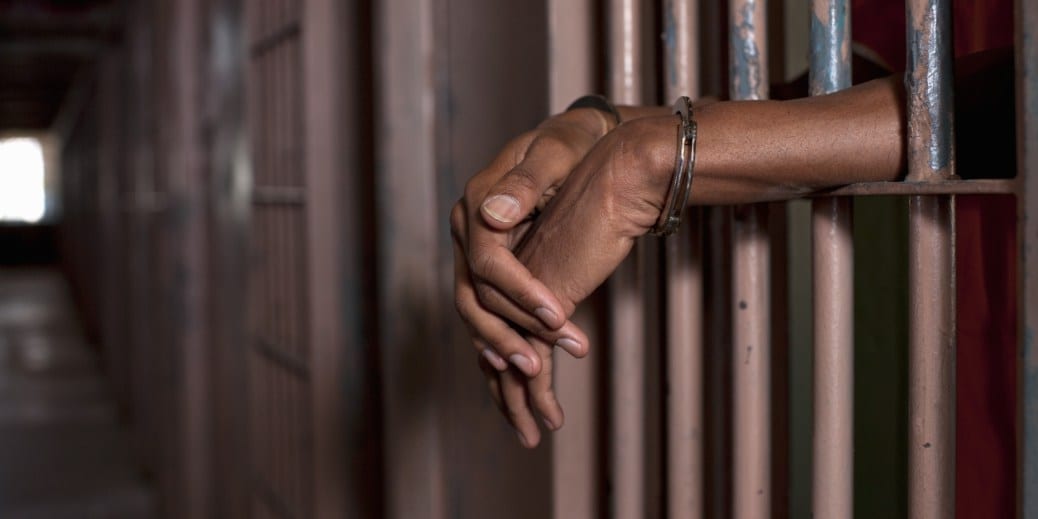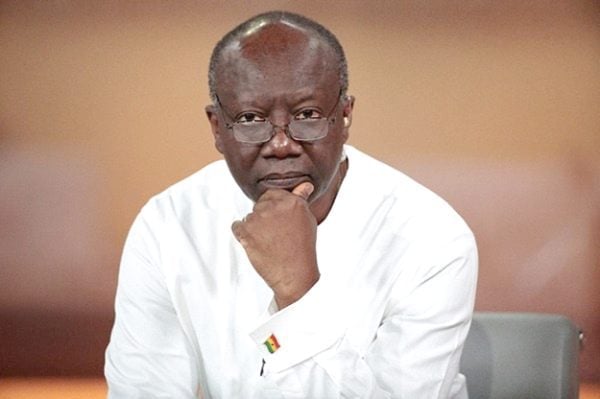
the story of Dr. Margaret Wekem Kukeba
“Out of difficulties grow miracles.” ? Jean de la Bruyere
Margaret Wekem Kukeba completed her nursing education at Bolgatanga Nursing Training College in the Upper East Region of Ghana.
After, the nurse was posted to a rural hospital ? Sandema District Hospital, also in the same region.
With no staff to support her, she played the role of a nurse, doctor, dispensary technician and cleaner all by herself whenever she was on duty. The prevailing situation forced her to multi-task and save lives. She recounts having countless failures and some successes.
Over the years, she developed impostor syndrome. She persistently believed that her success was undeserved. Despite life throwing some opportunities her way, her Goliath was her self-esteem. She daily had to convince herself that she was as capable as others.
Some years later, she was recruited and trained to teach at her alma mater. Her teaching experience brought her face-to-face with the ineffectiveness of nurse educators. Constantly, she would receive reports from her students that they were not allowed to practise what they were taught in class. Unfortunately, she had experienced the same in her day as a student.
Her students also complained of witnessing constant abuse of patients. This was not any different from what she witnessed in the ward when she was a student. To solve this, she began supervising students in these wards and encouraged other colleagues to do the same. She also decided to implement strategies to evaluate practice training; however, these attempts were met with resistance and unsuccessful riots by students.
The UK study experience
Margaret’s opportunity to study for her PhD at the University of Manchester in the UK was a paradigm-shifting one. Unlike her home country, she did not have to struggle to get what she needed as a student. Before lectures began, she already had been given every resource needed for her studies. She was taught how to learn, and the existing structures, systems and processes made studies even easier.
An experience that hurled her into wonderland was when three lecturers walked into class one day and indicated that they would be moderating one course. She froze out of shock when they handed over a course handbook for the entire course, including assignment proforma and submission date among others.
In the course of her studies, another lecturer notified the class of her absence on some days, explaining why she needed to be in the hospital. This effective, practical and evidence-based teaching was foreign to her despite teaching for years in Ghana.
The course outline objectives were knowledge-filled, understandable, intellectual, and practical. The experience was magical indeed, and she promised herself to implement the same when given any opportunity to contribute to decision-making in nursing education in Ghana.
Margaret’s life-changing moment in the UK was when she realised her potential to chase her dreams and contribute to the well-being of society. This was the moment she finally bid farewell to her impostor syndrome. She became more aware of herself and dared to be different.
She became critical of her environment and attempted to solve challenges no matter their size. For instance, competing in research seminar presentations was a task she had never dreamt of. Her supervisor, however, encouraged her to compete; and when she did, she emerged the best for two consecutive years before completing her PhD.
The Critical Appraisal and Evidence Synthesis course and NICE guidelines were very novel to her. Frankly, she had never heard of the word ‘evidence-based nursing’ even though WHO and UNICEF guidelines were used in Ghana.
Another experience that blew her away was the mentorship practice. In the UK, every nurse at a particular band or level was expected to undertake an accredited mentorship model. It was a must to mentor students each year before one’s license was renewed.
She also learnt that irrespective of one’s area of specialisation, all nurses were mandated to take training in some subjects before they were allowed to continue practice. Every hospital had a nurse researcher, and nurses were given study days to update their skills and knowledge. This was an eye-opener for her, which greatly impacted her approach to nursing and midwifery education.
Mindset change
Margaret’s experience changed a lot about her perception. Aside from boosting her confidence, it revived her passion to see her homeland develop. Her sense of duty was greatly renewed. She admitted that the admirable state of the UK’s National Health Service and education system was not based on rocket science but on the collective input of its citizens.
“People do not just work to earn a wage but attempt to make an impact and contribute to their world in the UK,” she noted. One day, she observed a nurse manager in the ward of a UK hospital and understood why there is less mortality as compared to hospitals in Ghana. She pledged to herself that if she could change one person to rethink, underdeveloped sectors such as health and education in Ghana would experience a turnaround.
When challenges lead to fate
Despite having a great vision for nursing education in Ghana, it was not going to be a jolly ride for Margaret Kukeba on her return. She had great plans but without the buy-in of her superiors, those plans were only going to be futile. Her first blow was when the head of her nursing school refused to fund skill training activities. When she fought it, she was transferred.
Eventually, she had to resign from the University of Development Studies when her students and some lecturers concluded that her demands were too many. Worse of all, she was called out and shamed publicly.
She decided to leave the country and go work as a professional nurse in the UK. It was around the same period that her current school, C. K. Tedam University of Technology and Applied Sciences in Navrongo, offered her an opportunity to lead its School of Nursing and Midwifery as its Dean.
The spark
Dr. Margaret Wekem Kukeba dreams of raising the standard of her school to be as equipped as others in the UK. She has already succeeded in convincing her university to formalise the academic clinician role, and she is championing evidence-based practice in teaching and practice. Together with five other universities, they have formed an evidence-based practice network. She has also successfully established and organised evidence-based training for practising nurses and all the faculty members of her school for the past two years.
By the end of the first quarter of 2024, she led some faculty members of NYU and the Faculty of Education of C. K. Tedam University of Technology and Applied Sciences to collaborate in the provision of further training on evidence-based teaching and learning methods, test construction and student assessment and evaluation. She is also expecting feedback from some faculty members of Guyana to facilitate workshops on various skills training methodologies.
She will be facilitating a meeting with the paediatric nurses group in the Upper East Region to start peer support systems for continuous improvement and development of skills in the various domains of child health.
Her research interest area is maternal and child health, and she is currently collaborating with researchers from Ghana, UK and US to conduct research in areas related to adolescent reproduction, pain management in children, nutrition in children with SCD, emergency child healthcare, and child health prevention practices, among others.
One soft skill studying in the UK gifted Margaret is time management. This makes her keep a daily itinerary and priority list. Despite the size of her dreams, this skill has kept her sane while implementing new ideas.
Her UK education advantage has helped her negotiate with heads of units of her university based on their mission, vision and objectives. They blend these overarching goals to suit each unit’s individual goals and then review them periodically.
They further set timelines and track the progress of these projects. Their major challenges, however, have been funds and the bureaucracy of Ghanaian systems.
She has successfully co-founded the School of Nursing and Midwifery Evidenced-Based Nursing and Midwifery Project Fund (SNM-EBNM-PF) which is funded mainly by staff members. Individually, they contribute GH¢200 monthly to the fund. However, they are yet to complete their first project.
Social impact
Today, Dr. Margaret Wekem Kukeba’s influence on her students has had a ripple-effect on society. A group of her former students have formed an NGO called Aide to the Vulnerable. They voluntarily provide health screening to street children and children with special needs.
Also, the Ghana Registered Nurses and Midwifery Association (GRNMA) in her region has primarily relied on her to offer training programmes for nurses and midwives to equip them to provide care.
Her school also commemorates the various health days, such as breast and cervical cancer months, by providing health screening and education. On 6th March, 2024, for example, her school collaborated with WiSTEM to give a talk to students of St. John Bosco’s College of Education on their reproductive and mental health.
Impact of UK Study Alumni Award
The UK Study Alumni Award has opened innumerable doors for Dr. Margaret Wekem Kukeba. Following the award, a few philanthropists have reached out to her and pledged to provide training support for her staff and clinical nurses. She was also offered an opportunity to join a publication team to review articles. This is how far the young woman with impostor syndrome has come.
Courtesy of her GH¢10,000 worth of professional development grant from British Council, she has created a clinical supervision module where senior nurses at the Bolgatanga Regional Hospital effectively mentor junior nurses in the wards.
She has also devised a toolkit that serves as a priceless guide for the mentorship. Lead nurses monitor this mentorship process. The next phase of her project is to research the impact of this mentorship project. This is set to begin in November.
The greatest benefit of the award is to have the opportunity to share her story. It is her hope it inspires somebody to brighten the corner where they are. At least, this validates the fact that she deserves the applause.
The biggest dream of Dr. Margaret Wekem Kukeba is to have nurse educators at the policy-making table to make their voices heard. This, she knows, will soon be a reality. She is not giving up anytime soon!
The post The UK experience that sparked the fire in me!!! appeared first on The Business & Financial Times.
Read Full Story




















Facebook
Twitter
Pinterest
Instagram
Google+
YouTube
LinkedIn
RSS